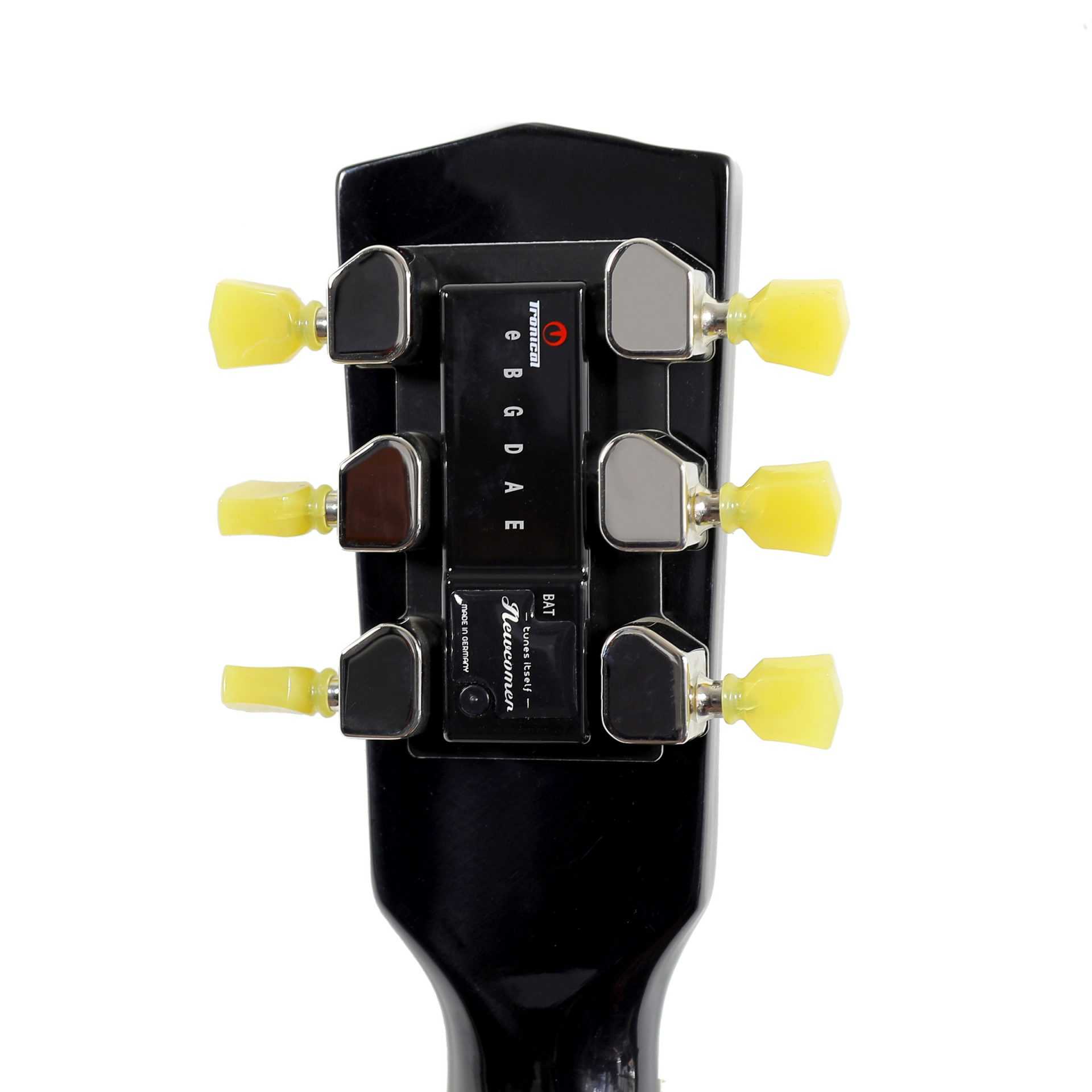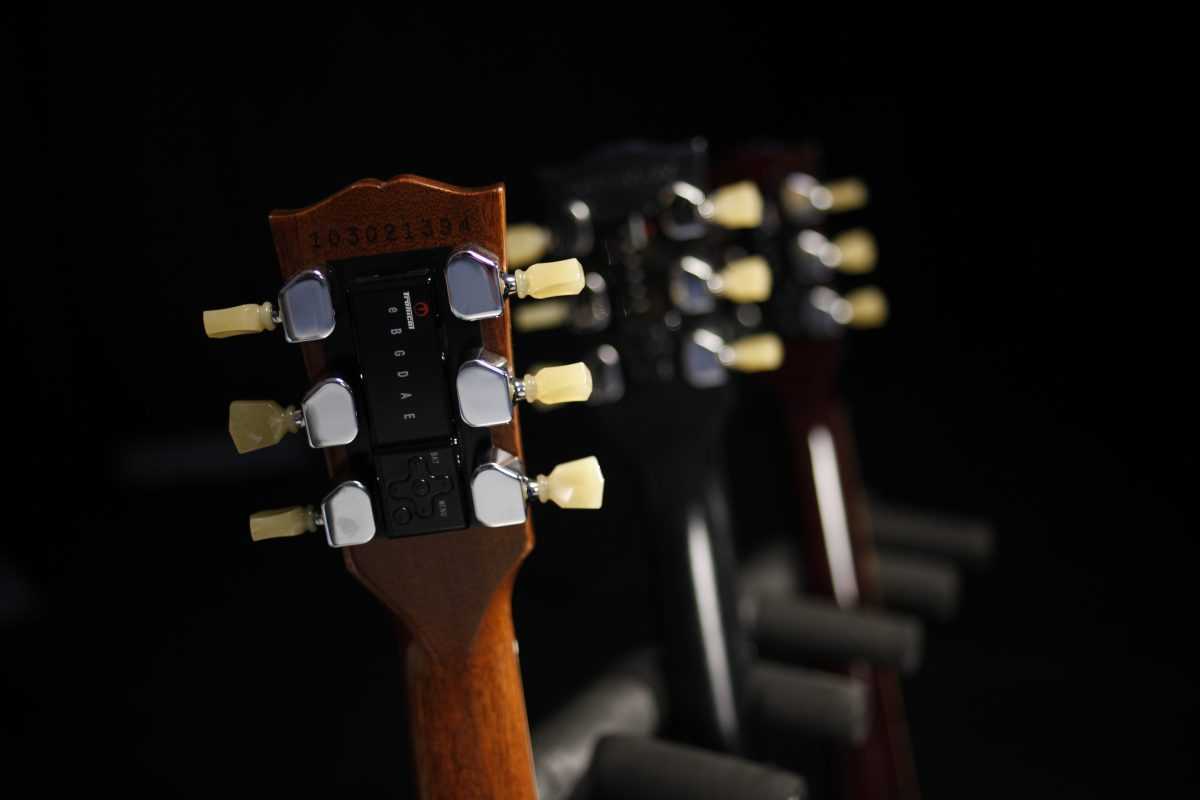Guitar Tuner, Guitar Tuners, Tune a Guitar
Tuning into Innovation: The Evolution of Guitar Tuners
In the realm of music, precision is paramount. From the intricate melodies of a classical symphony to the raw energy of a rock anthem, every note must ring true. For guitarists, achieving perfect pitch is a fundamental pursuit, and the evolution of guitar tuners has played a pivotal role in this quest for sonic excellence.
The Birth of Tuning Technology
In the early days of guitar playing, tuning was a rudimentary affair. Musicians relied on their ears, often aided by pitch pipes or tuning forks, to achieve the desired sound. However, as music became more complex and the demand for accuracy grew, the need for more advanced tuning tools became apparent.

Enter Electronic Tuners
The advent of electronic technology revolutionized the world of guitar tuning. In the 1970s, the first electronic guitar tuners hit the market, offering musicians a faster and more precise way to tune their instruments. These early tuners typically featured LED displays and used microphone pickups to detect the pitch of each string.
The Rise of Digital Tuners
With the digital revolution of the 1980s and 1990s, guitar tuners underwent another transformation. Digital tuners replaced analog displays with LCD screens, providing clearer readouts and greater accuracy. These tuners also introduced new features such as built-in metronomes and chromatic tuning capabilities, expanding their utility for musicians of all genres.
Mobile Tuning Apps: Tuning on the Go
In the 21st century, the rise of smartphones brought about yet another evolution in guitar tuning technology. Mobile tuning apps emerged, offering guitarists a convenient and portable solution for staying in tune wherever they go. These apps leverage the power of smartphones’ built-in microphones to analyze the pitch of each string, providing real-time feedback and guidance for achieving perfect tuning.
SEO: Tuning into Guitar Tuner Keywords
When it comes to discussing the development of guitar tuners, incorporating SEO (Search Engine Optimization) keywords is essential for reaching the target audience. Keywords such as “guitar tuner,” “best guitar tuner,” “digital guitar tuner,” and “mobile guitar tuner” can help optimize the article for search engine visibility. Additionally, including long-tail keywords such as “how guitar tuners work” or “history of guitar tuning technology” can attract more specific search queries and drive targeted traffic to the content.
The Future of Guitar Tuning
As technology continues to advance, the future of guitar tuning holds exciting possibilities. Artificial intelligence and machine learning algorithms may soon revolutionize the way guitarists tune their instruments, offering personalized tuning recommendations based on playing style and musical preferences. Additionally, the integration of wireless connectivity could enable guitar tuners to communicate seamlessly with other devices, further enhancing the musician’s experience.
In conclusion, the development of guitar tuner has undergone a remarkable journey, from the early days of analog technology to the digital age of mobile apps and beyond. As musicians continue to push the boundaries of creativity and expression, guitar tuners will remain an indispensable tool for achieving sonic perfection. Through innovation and ingenuity, the quest for perfect pitch will continue to inspire new developments in tuning technology for generations to come.
The Role of Guitar Tuners in Music Education
Beyond the stage and the studio, guitar tuners play a crucial role in music education. For aspiring guitarists, learning to tune their instrument is often one of the first challenges they encounter. Tuners provide a valuable learning tool, teaching students the importance of ear training and helping them develop a keen sense of pitch. With the rise of digital tuners and mobile apps, music teachers now have access to a wealth of resources for teaching tuning techniques effectively. By instilling good tuning habits early on, educators empower their students to become confident and skilled musicians, setting them on a path to success in their musical journey.



